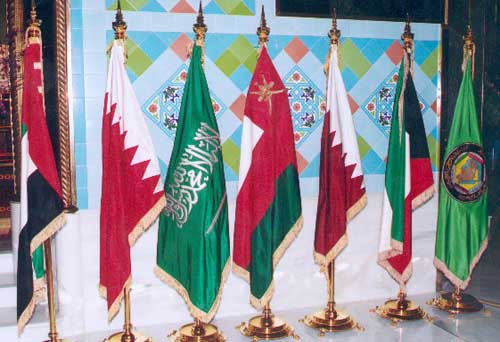Amnesty Int’l Says Gulf Rift Taking Toll on Ordinary Citizens, Families

2017-12-15 - 7:40 p
Bahrain Mirror (Reuters): Families are being torn apart by the rift between Qatar and three other Gulf Arab states which began six months ago, Amnesty International said on Thursday, despite measures to ease the impact of the crisis on ordinary citizens.
Saudi Arabia, the United Arab Emirates and Bahrain, along with Egypt, imposed travel, economic and diplomatic sanctions on Qatar in June over allegations of supporting terrorism. Doha denies the charge.
The human rights group, citing interviews with individuals and Qatari officials, said thousands of people had been affected by the rift, which has split families, raised food prices for foreign workers and made visits to Islamic holy sites in Saudi Arabia more difficult.
Officials from Saudi Arabia, the UAE and Bahrain could not immediately be reached to comment on the report. But the three U.S.-allied countries had announced measures in June to ease the impact of the dispute on mixed families, including setting up hotlines to deal with humanitarian issues.
Saudi Arabia has also said it was allowing visits to holy sites and opened its doors to Muslims in Qatar to perform the annual Muslim haj pilgrimage.
Diplomatic efforts led by Kuwait to resolve the dispute have so far failed to achieve a breakthrough.
The report was based on interviews with 44 affected individuals conducted in late November in Qatar as well as meetings with Qatari officials.
Despite measures to allow families in mixed marriages to visit, many were finding it difficult to comply with procedures required to apply for a "laissez-passer" that allows residents of Qatar to travel to see loves ones in Saudi Arabia, Bahrain or the UAE, the report said.
It said that there was scant, or no, information about the application process on official UAE and Saudi ministry websites, while travel to Bahrain had become more difficult since Manama imposed an entry visa requirement for Qatari nationals and residents at a time when the embassy in Doha is closed.
"Affected families told Amnesty International that hotlines announced by the Bahrain, Saudi Arabian and UAE governments were difficult to access," the rights watchdog said.
Lynn Maalouf, Director of Research for the Middle East at Amnesty International, said that by imposing travel restrictions on ordinary people, Bahrain, Saudi Arabia and the UAE have "violated the right to family life, education and freedom of expression".
"Since this dispute began in June, our fears about its potential to rip families apart have been cruelly and emphatically realized," Maalouf said in a statement.
- 2022-07-07Israel Reaches Record Trade Increase With Arab States Under Abraham Accords
- 2022-06-10Israeli PM Bennett Visits Abu Dhabi, Meets with UAE President
- 2022-06-10Israelis to be Allowed into Qatar for World Cup, Officials Say
- 2022-06-06Biden should not Visit Saudi, Meet Crown Prince: US Lawmaker Adam Schiff
- 2022-06-01Israel Signs UAE Free Trade Deal, Its First in Arab World